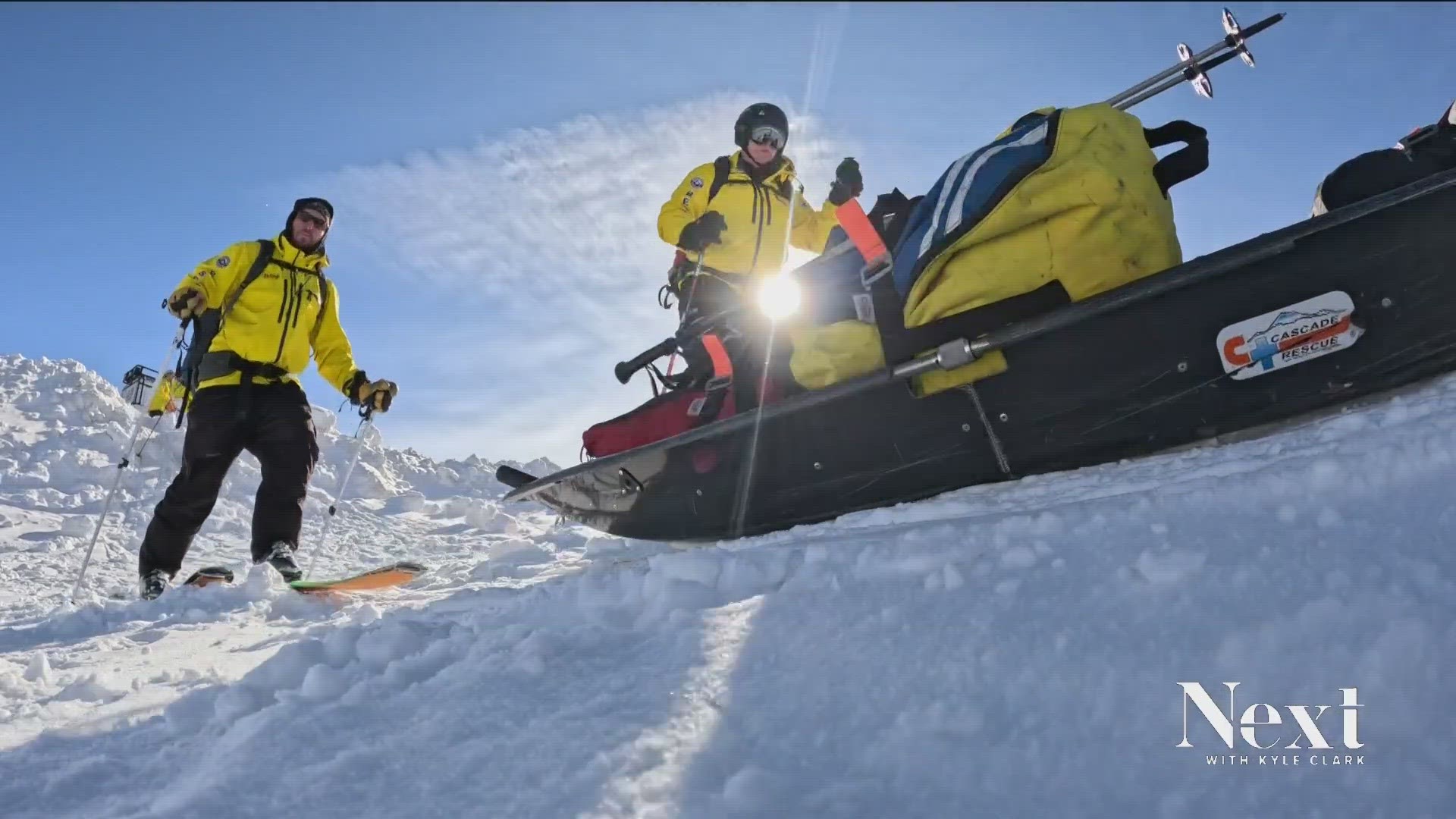DENVER — Colorado’s backcountry can be a dangerous place. Another two people -- one in Pitkin County and another in Gunnison County -- died in avalanches this weekend, raising the state's total to nine so far this year.
The search and rescue teams that respond are almost entirely made up of volunteers. Now there’s a focus on making sure they get the help they need when they go home at night.
"We’ve been focused on the sustainability of our system," said Anna DeBattiste with the Colorado Search and Rescue Association. "How can we make sure that we can continue to do what we’re doing, from a funding perspective, and a resiliency perspective?"
Mental health has become a priority. Legislation passed in 2021 mandated a study on backcountry search and rescue in Colorado. Now the teams have access for the first time to things like stress injury training and mental health resources. There’s a fight for more.
"There’s a lot of pressure put on the volunteers, especially when someone is very badly hurt and their lives are in our hands to get them out in time," said DeBattiste. "We’re making some small steps and we need to continue those."
Volunteer teams respond to calls in their own cars and buy most of their own gear. The Colorado Search and Rescue Association tells 9NEWS they’re fighting for more team members to get reimbursed for gas responding to emergencies as well as help paying for some of the gear they use to rescue people.
"Some of those more rural teams who have fewer members may see greater impacts than other teams," said DeBattiste.
Search and rescue teams in some ways are very similar to volunteer firefighters, DeBattiste says. But it wasn’t until a bill last year that they got some of the same protections -- things like immunity from civil lawsuits. They say they should have had those protections a long time ago.
"It brought us on par with volunteer firefighters in terms of giving us immunity from civil lawsuits and giving nonprofit groups protections from civil lawsuits," said DeBattiste.
Rraine Jones is a volunteer with Grand County Search and Rescue. Of the nine avalanche deaths so far this winter, a third of them have been in Grand County. Her team has already responded to two snowmobilers and a skier who have died.
For context, in an average season in Colorado we see six avalanche deaths.
"Our team is starting to recognize that this toll is different on every person. We’re trying to address that in how we take care of each other," said Jones. "Recently, with the new legislation that was passed, there’s more training available to us on this subject. When this came out, I think teams were just like, yes, we need this and want this."
The volunteers drop what they’re doing every time someone needs help. Now the focus is on making sure the rescuers also get the resources they need.
"We are at nine avalanche fatalities across the state at this point in time and the season is by no means over," said DeBattiste. "So, that’s not a great number."
It's hard to say what's made this season more deadly than an average season. The mountains in Colorado have received a lot of snow, often making it unstable in certain conditions. The Colorado Avalanche Information Center says the dangerous conditions are likely to continue for several more weeks.
SUGGESTED VIDEOS: Full Episodes of Next with Kyle Clark

